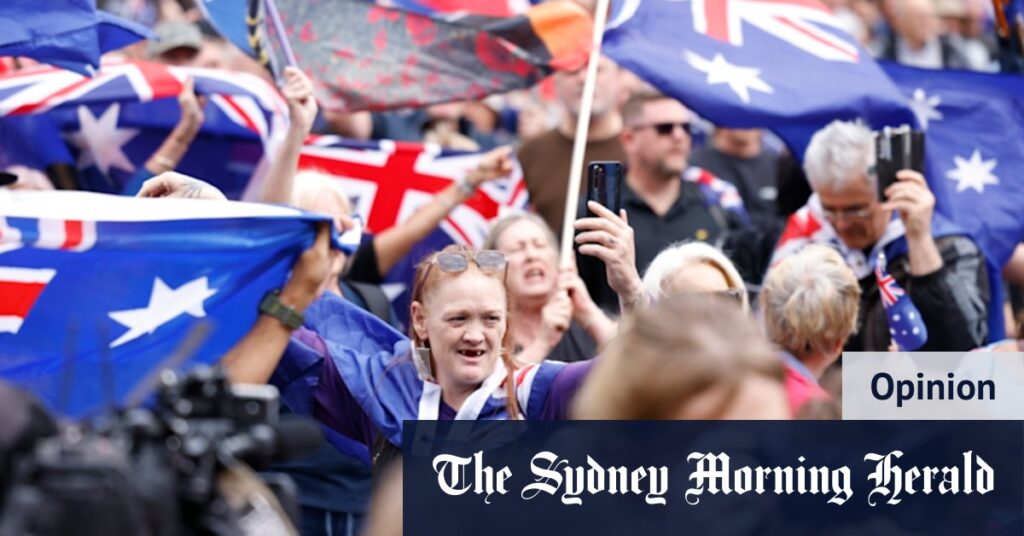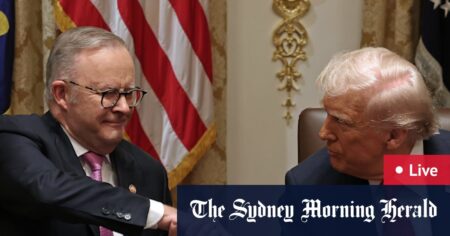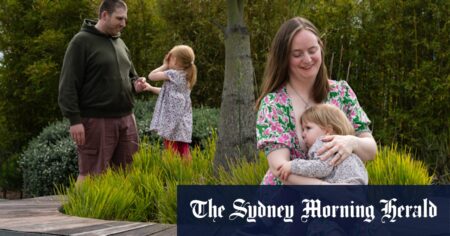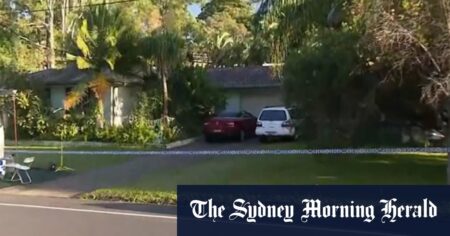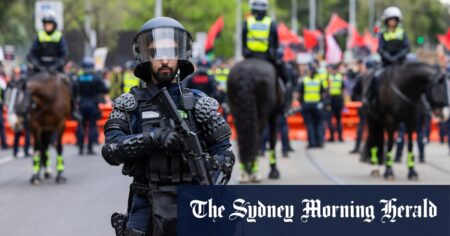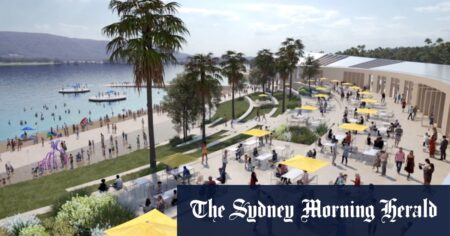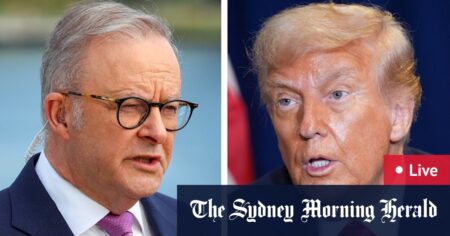There was a time when Melbourne prided itself on being the most liveable city in the world, tolerant, thoughtful, creative and diverse. We wore that badge with pride and spoke of it often with confidence, not arrogance. Ours was a city in which ideas, not ideology, competed. Where people could disagree without despising each other. But somewhere along the way, and particularly since the COVID lockdowns, Melbourne has lost its way.
It’s a difficult truth to confront, but it’s one we must. The pandemic demanded leadership, but in hindsight it also took something from us: our collective empathy, our civic spirit and our tolerance for dissent.
Police form a line between opposing groups of protesters in Melbourne’s CBD on Sunday.Credit: Paul Jeffers
Many supported Melbourne’s long lockdowns at the time, believing we were protecting our health system and by extension one another. But as the years have passed, their unintended consequences have become impossible to ignore. The mental scars, the fractured trust and the polarisation they seeded continue to be the lasting legacy of Daniel Andrews.
Melbourne now feels angrier, edgier, more brittle. We’ve gone from a community that not only valued difference but celebrated it, to one that too often condemns it. We are quick to label, slow to listen and far more inclined to shout someone down rather than hear them out. The city’s streets have become battlegrounds for outrage. Every week seems to bring another protest that descends into confrontation. What used to be the free expression of democracy now risks becoming its weaponisation.
This is not a call to ban protests. They remain an essential bedrock of democracy. It’s how social movements have shaped history from women’s rights to Aboriginal land rights and environmental crusades. But just as free speech is not absolute (defamation laws prove that words have limits), so, too, do protests come with guardrails. Democracy depends not only on the right to speak, but also on the right to feel safe while others do.
We need a system that protects both. That’s why it’s time for Melbourne to introduce a CBD protest permit system, designed not to silence anyone but to ensure fairness, safety and access for all. The idea is simple: protests that take place over major city arteries, block trams or surround landmarks like Parliament House should require a permit, much like event organisers do for marathons, marches or festivals.
Loading
At the same time, we should establish designated areas across the city where people can gather and demonstrate as a right – spaces that are public, accessible and symbolic of democratic engagement. The Fitzroy Gardens, outside 1 Treasury Place, Flagstaff Gardens or the lawns around the Arts Centre could all serve this purpose. Each is connected to public transport, visible and open, perfect for ensuring protesters can be heard without paralysing the city or intimidating bystanders.
Importantly, protected industrial action must remain exempt. The courts have already deemed such action lawful and rightly so. Workers fighting for fair pay or safe conditions should never fear being locked up or fined simply for standing up for their rights. The right to organise is a cornerstone of our democracy, not an inconvenience to it.
Read the full article here





